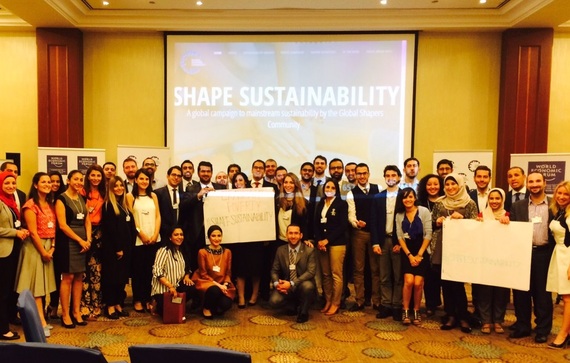The Sustainable Development Goals (SDGS) will be the successor of the Millennium Development Goals (MDGS). From January 2016 until end of 2030 the member states of the United Nations are expected to frame their agenda around those goals. Therefore 2015 is a unique year to shape the agenda for the next 15 years.
The SDGs are focused around six elements: (1) Dignity, (2) Basic needs of people, (3) Prosperity, (4) Planet, (5) Partnerships and (6) Justice. Around these six elements there are currently 17 suggested goals with 169 targets. This is a significant increase to the current number of eight MDGs. While in theory the MDGs were supposed to apply for all member nations, but practically focusing on the poor countries. As Helen Clark mentioned the SDGs are not a development agenda but a universal agenda. Every single country has economical, social and environmental challenges and therefore the new goals apply.
The process of determining the SDGs has been lot more open than during the process than it was the case for the MDGs. Stakeholders like NGOs and business were asked to contribute to open working groups. The MyWorld survey was created to reach as many people as possible and to listen to their priorities. More than seven million people participated in their survey and therefore had a chance to clearly communicate their priorities. This journey has been tremendous work and use of resources. Therefore the question arises, if the establishment of a new set of goals is even worth it and what the effects can be. There has been a lot of criticism around the MDGS and its effectiveness. But many analyses including also a recent one from the Economist have shown that (at least partially) there has been made tremendous progress along the MDGs. As Jeffrey D. Sachs wrote in a recent article on this topic, he sees the importance of creating these goals for three important issues: social mobilization, create peer pressure and to spur epistemic communities. When bold goals are set, those communities of knowledge and practice come together to recommend practical pathways to achieve results.
The Global Shapers Community, an initiative launched by the World Economic Forum over 410 hubs in 165 countries across the world, decentralized structure and with its deep reach into the communities, is uniquely positioned to strengthen the integration of the SDGs in the local communities. It is important that these SDGs are brought to the common person at a community level in addition to the national one, without losing the synergies of an international cooperation. Almost one year ago, 18 Global Shapers from five continents travelled to New York City to begin a truly unique and powerful collaboration with the United Nations to work on mainstreaming sustainability. Since then five workstreams have been established: raising awareness, education, projects, partnerships and influencing policy makers.
The Global Shapers Community is now working towards mainstreaming sustainability in 400+ communities across the world and launched their SHAPE sustainability campaign. It started with a session 'Bringing Sustainability to the masses' as part of the Shaping Davos initiative wherein 5 local communities from Kolkata, Paramaribo, Port Louis, Chengdu and Panjim organized local activities and joined the Davos discussion virtually. It followed with a photo campaign to raise awareness about these goals and the participants included Crown Princess Mette-Marit and Crown Price Haakon of Norway, Matthieu Ricard, Amina J Mohamed, Borge Brende, Foreign Minister of Norway etc. At the East Summit in Jakarta, we are launching this global campaign which also includes 'Sustainability Sundays' to promote local discussions and local actions on this topic.
The first five hubs in India, Mauritius and Suriname have already concluded events for this weekly series. The goal is that 100 hubs from around the world will conduct events to raise awareness on and to educate around the SDGs along with local stakeholders. We are also launching a website www.shapesutainabilty.org to capture all the important stories from different parts of the world. Local action coupled with global partnerships can help to spread the word till the last mile and this mobilization of people to join this important effort is going make a big difference in our everyday lives.
